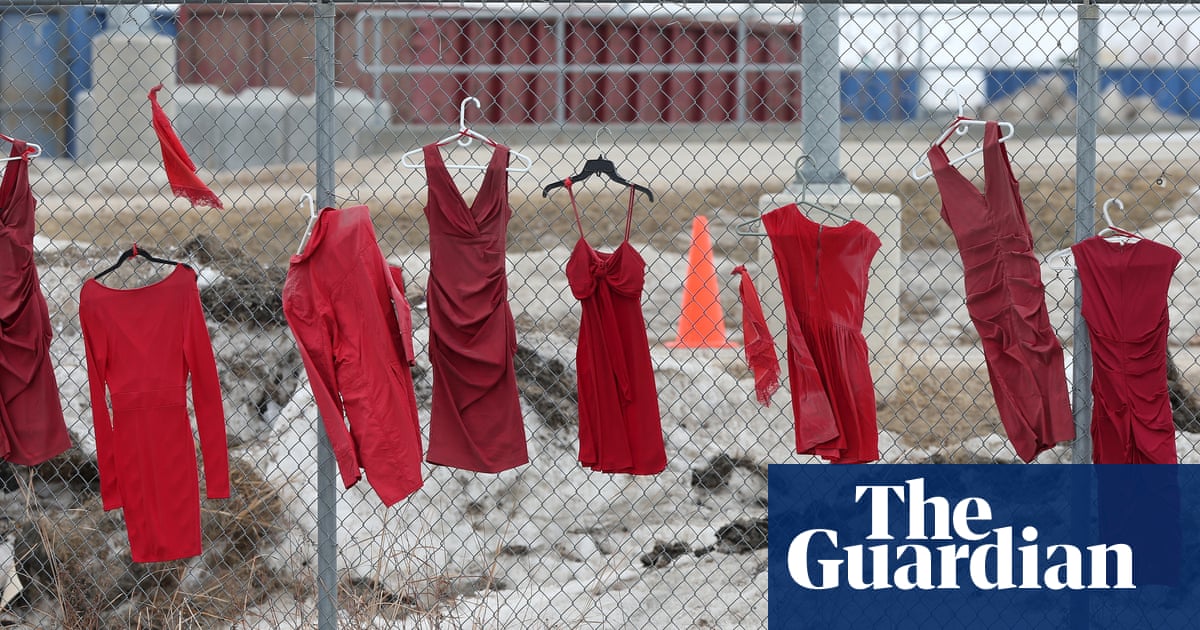The unprecedented search of a landfill in Canada for the remains of two murdered Indigenous women entered a critical yet “difficult” stage as teams braced for the possibility of finally recovering the victims of a convicted serial killer.
On Monday morning, trucks began carrying excavated material from a Winnipeg landfill, said the Manitoba premier, Wab Kinew, as he outlined the immense scope of a search aiming to bring some closure to grieving families.
In July, a Manitoba judge handed down a life sentence to Jeremy Skibicki for the “jarring and numbing” murders of four Indigenous women: Rebecca Contois, Morgan Harris, Marcedes Myran and an unidentified woman who was named Mashkode Bizhiki’ikwe (Buffalo Woman) by Indigenous leaders.
Kinew said on Monday: “While I am professionally obligated to remind everyone that we don’t know what the odds of the situation being successful are, in terms of recovering the remains of Morgan and Marcedes, we can say with confidence that we have a chance for this search to succeed. No matter what lies ahead, we can say we tried and we made the effort for these families.”
The murders were first uncovered in 2022, when the remains of Rebecca Contois, a member of Crane River First Nation, were found in a dumpster near Skibicki’s home. Police later found more remains in a city landfill.
The daunting search, the subject of a fierce political battle, requires sifting through nearly 20,300 cubic metres of material with rakes and by hand. The process is so intensive that new infrastructure was built after tens of millions of dollars was granted by the federal government. Power lines, roads, parking lots and changing facilities were built this year. Kinew said a massive steel heated building was also constructed to allow teams to sift though wet material by hand while outside temperatures plunge below -20C.
Of the 45 search technicians hired, including family liaisons, a forensic anthropologist, a health and safety officer, and a director of operations, half are Indigenous.
Kinew warned that the coming months of the search, which he said marked the fourth stage, would be a “difficult” part of the effort and could “stretch on for a very long period of time”.
In anticipation of the new phase of the search, teams have removed nearly 19,000 tonnes of material in an area of the Prairie Green landfill they suspect could hold the remains of the women – aided by newspapers and milk cartons marked with dates that tell roughly when the garbage was placed in the area.
Kinew has spent time with the families leading up to the search and on Sunday – a grim anniversary of two years from when the Harris family first learned from police that’s where her remains likely are – spent time with the Harris and Myran families.
“We stood with them in ceremony, and this morning, I was there with two family members as we watched the first blue truck of landfill material come down to the search facility,” he said. “It is an intense emotion that you feel, standing on that site with those families.”
The premier, who made a search of the landfill a priority when he campaigned for Manitoba’s top job in 2023, said excuses given by police and the previous government for why a search was not possible had been “systematically disproven”.
“I hope the search concludes quickly, with the result that the families are looking forward to,” he said. “We can then move on, helping them walk through the next stages of their healing journeys and of grieving their loved ones, who were taken from them in what are some of the worst crimes that we’ve ever seen in the history of our province.”
∎